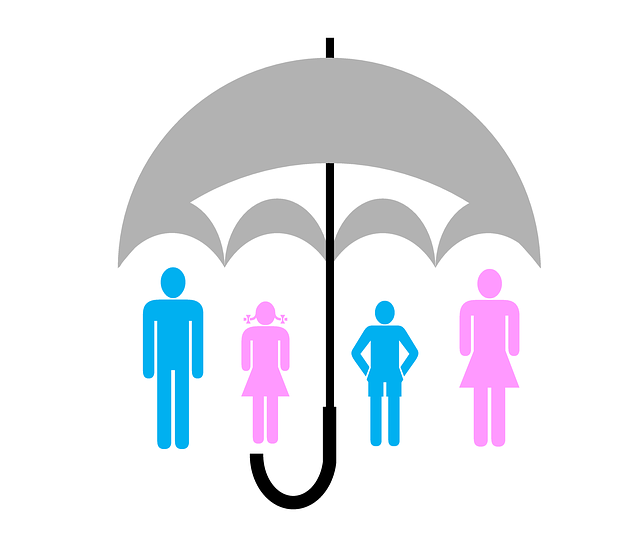I’ve been holding off on this post for a while, letting it simmer. It’s been on my mind for months, ever since the rumors of my company being bought out by some insignificant minnow turned out to be true.
Here’s the crux of the situation. Where I take a job is now 100% dependent on what insurance they offer.
Think about that for a moment. My company is switching health insurance. I may have to quit over it. I have been looking around at other jobs in case I do. I may not be able to take half of them because of the health insurance they provide.
That’s beyond idiotic.
I’ll explain my situation a bit more later, but I want to take a step back. Most people agree that the health insurance situation in the US has problems, which basically fall into three buckets: price, access to care, and availability.
The last major health insurance reform was the Patient Protection and Affordable Care Act, more commonly known as either the ACA (if you’re a Democrat) or Obamacare (if you’re a Republican). If you can remember the arguments in favor of passing the deeply polarizing bill, it was that it would address all three of those issues.
So how has it held up over the past five years? The best arguments I’ve seen is that it’s helped more people into a broken health insurance system.
Well done, everyone. Because when something’s broken, the best solution is to give it to more people, not actually fix it.
Yes, that was sarcasm. And yes, I am a bitter about the way health insurance current works.
Let me go back to my own situation to help explain that bitterness. My son was recently diagnosed with Autism Spectrum Disorder Level 1, or ASD, which is a new categorization created by the APA based on the wording of benefits of the ACA (yes, I am going for the record of most ‘a’ acronyms in one logical sentence). Before the law was passed, he likely would have been diagnosed with Asperger’s Syndrome.
For treatments, he’s currently receiving Occupational Therapy, and we’re trying desperately to get him into Applied Behavior Analysis Therapy, or ABA (‘A’ acronym #4 in this post). Both have long waiting lists, and both limit the types of insurance they accept.
That means either (a) I find a job with insurance both of the therapists accept, (b) I find new therapists after switching jobs, which wipes out months of rapport and sticks us back onto waiting lists that extend out six months, or (c) I pay tens of thousands of dollars out of our own pocket.
None of those are good options.
Which leads me back to the question that really should have been key to the 2010 health care debate: why the heck is insurance tied to employer?
Obamacare, if anything, made this slightly worse, requiring more and more employers to provide insurance.
It doesn’t make sense. Can you imagine if suddenly the only logical way to get car insurance was through your employer? Some employers might offer a million different options. Others might offer liability only. And which you’re allowed to choose is completely dependent on the machinations of your HR department.
If that were to happen, car insurance companies would no longer compete for your dollars. They’d compete for your employer’s dollars. And, amazingly enough, your interests and your employer’s interests don’t typically overlap.
We got into this health insurance mess thanks to an oversight back during World War II. The Roosevelt Administration was convinced they knew what people should get paid better than employers, so they created all kinds of wage and price controls. Since companies could no longer to compete for employees with salary alone, they started offering non-regulated fringe benefits such as health insurance to lure over the best and brightest workers.
At some point later, Congress cemented the health insurance fringe benefit by making employer purchased health insurance tax deductible. Individually purchased health insurance, unfortunately, they left as not tax deductible (unless you hit some pretty high hurdles).
As far as I can tell, the main reason this method is still around is because (a) people are afraid of change and (b) businesses are much easier to regulate than individuals.
To explain point b, just look at efforts to provide people with more insurance with the ACA. The individual mandate has been met with insane levels of opposition. The business mandate has been met with a shrug.
Our current system really should change, though. My company doesn’t have my best interest in mind, they have theirs. Which is totally fine. But when you throw insurance into the mix, it creates a messy stew. And finding a job requires me (and probably you) to factor in yet another factor TOTALLY PERIPHERAL TO ANY WORK.
Besides that, it allows companies to screw you over. I could get paid almost the same salary at my current job as I’d get at Dish Network (Dish is the local whipping boy in the Denver community for obvious reasons). Yet if I were to choose to work at Dish, I’d probably get paid at least $5k less a year in benefits, something I might not even think about until I’m lying in the hospital with an invoice shoved in my face.
So why can’t I just choose insurance on my own? I can figure out my needs, shop around, and find the best deal for what I want. It seems like most businesses would love this, since it’d reduce a lot of headache, expense, and uncertainty, especially for the many self insured companies that could be out millions if one of their employees has premature twins. And employees should like it since it means that switching jobs doesn’t mean switching insurance, doctors, and all the other complications new insurance can bring.
No large change is easy, but in this case the government just needs to tip over one domino: make health insurance non-deductible for tax purposes at the business level. That would give companies a heavy incentive to pay employees more in salary (which would deductible) rather than non-deductible benefits.
The market economy really is incredibly smart and responsive. That one change would give every incentive in the world to recreate the health insurance market to caters to individuals’, rather than companies’, needs.
Note that none of this has any relevance to helping those who can’t afford insurance on their own. This change doesn’t mean that we can’t figure out ways to cover the cost of insurance plans for those who can’t cover it themselves. We should do that. As an added bonus, this new system would be a step towards creating a less distorted market, meaning our efforts to help the poor would have more bang for the buck.
Now, many people will look at this problem and say, “How about we just let the government take over and go to a single payer plan?”
Besides the fact that doing so would create the single biggest employer in the world with a bureaucracy so massive that it’s combined weight would likely knock the planet out of orbit, it wouldn’t actually solve the problem.
Yes, it would help with part of the problem: our employers would no longer be included in the insurance equation. Good.
It still doesn’t give me a choice, though. Right now, if my doctor doesn’t support my employer’s insurance, I can potentially get a new job with new insurance. Or even spend a little more and get insurance on my own. Both would be huge pains, but they can be done.
What if we move to the single payer health system and my government insurance doesn’t support my doctor? Should I switch countries just to get my son’s ABA Therapy’s covered?
If you think that’s not a real issue, just ask a Canadian with an autistic child what they think.
Governments are self interested, too, and anyone who thinks the government’s interests always lines up with their citizens’ hasn’t spend enough time at the DMV.
There’s no such thing as a free lunch. We can’t get everything that we want. Life is about trade offs. There is no silver bullet. Other cliché economic sayings that happen to be true.
My point being that at the end of the day, the best way I’m going to get what’s right for me and my family is for me and my family to be able to to choose what we need, including with our own insurance. A bureaucrat is never going to know better than me what I need, whether that bureaucrat is sitting in DC or on the floor above me.
If we allow individuals to make their own choices on what insurance they buy, it will, overall, make the health insurance situation better for everyone. That’s how markets work. That’s why we can chose between hundreds of different types of deodorant and pay less than a market mandated single stick would cost.
Would this solution be perfect for everyone? Of course not. You’re never going to make something as complex as insurance perfect for 300 million people. But if we can each choose our own, it will be better.


